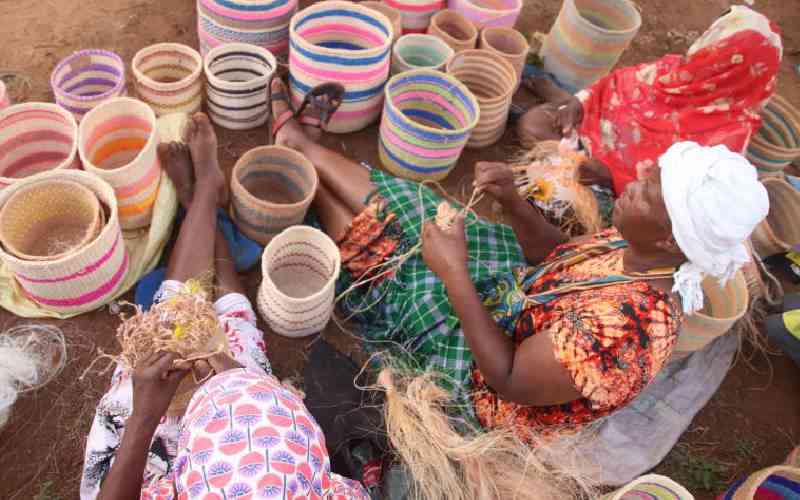×
The Standard e-Paper
Stay Informed, Even Offline

Women in Kasigau, Taita Taveta County in Basket weaving business during the drought season that has affected the area and some parts of The country. [David Gichuru, Standard]
Thousands of Kenyans are facing starvation following a drought that has ravaged 10 out of the 47 counties. Already, the government has declared the drought a national disaster.